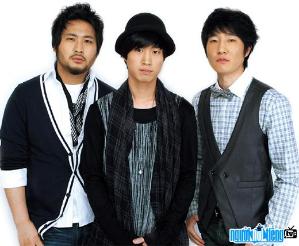Band Davichi
Index of content:
Davichi
Working place: Seoul
Founding day: ?-?-2008 (18 years old)
Population of the world 2008: 6.7 billions
Global rank: #2496
Facebook: facebook.com/DETers.Love.Davichi/
Email: updating
Phone number: updating
Who is Band Davichi?
Davichi is Korea's top girl group with 2 talented members Lee Hae Ri and Kang Min Kyung. Both Hae Ri and Min Kyung possess powerful vocals of the rare form of Kpop. "Davichi" means "Light that shines over the world". Davichi's Fanclub name is "Davichi Chord" which roughly translates as "Chord of Light". Unlike other idol groups, Davichi not only has radiant beauty but also focuses on vocals. Davichi's songs are always carefully invested, gentle melodies, deep lyrics. Although Davichi does not promote on music shows, every time a product is released, the audience becomes feverish. No eye-catching choreography, no catchy melodies like EDM, only Davichi's voice builds a solid position in the hearts of fans. In particular, Davichi has many soundtrack songs in many hit movies in recent times.
Debuting in 2008, Davichi has won many awards in the category of "best new girl group". The song "8282" in the mini album released in 2009 quickly topped many music charts.
Davichi's best songs:
Davichi is Korea's top girl group with 2 talented members Lee Hae Ri and Kang Min Kyung. Both Hae Ri and Min Kyung possess powerful vocals of the rare form of Kpop. "Davichi" means "Light that shines over the world". Davichi's Fanclub name is "Davichi Chord" which roughly translates as "Chord of Light". Unlike other idol groups, Davichi not only has radiant beauty but also focuses on vocals. Davichi's songs are always carefully invested, gentle melodies, deep lyrics. Although Davichi does not promote on music shows, every time a product is released, the audience becomes feverish. No eye-catching choreography, no catchy melodies like EDM, only Davichi's voice builds a solid position in the hearts of fans. In particular, Davichi has many soundtrack songs in many hit movies in recent times.
Debuting in 2008, Davichi has won many awards in the category of "best new girl group". The song "8282" in the mini album released in 2009 quickly topped many music charts.
Davichi's best songs:
- "This Love" (OST "Descendants of the Sun") the soundtrack stormed the boards music ratings. This is the 3rd product in the OST list "Descendants of the Sun" which is dedicated to the beautiful love story that makes the audience both excited and heartbreaking of the Seo Daeyoung couple (Jin Goo) and Yoon Myungjoo (Kim Jiwon).
- "Don't Say Goodbye" tells the love story between the two girls. girl with a boy. The guy brought a girl Kang Min Kyung home after discovering her fainting in the office. After living together for a while, the two hearts were fluttering at times. However, the boy still remembers the figure of his former lover. Even accept to exchange the current lover to return to the old lover. The story is sadder with Min Kyung's screams of pain and tears in her eyes.
- "It's Okay, That's Love" (OST of the movie of the same name). This is one of the 8 soundtrack songs of the hit movie "Only Love". Davichi's emotional voice has conquered the hearts of many audiences.
- "The Letter" ballad released in November 2013 tells about the sad ending of a couple. The guy sent the girl a letter to say goodbye. "The Letter" touches listeners' hearts with the wonderful harmony of the Davichi girls. Davichi's strong, inspirational voice makes viewers feel moved.
- "We Were In Love" combined with group T-Ara is a special gift for the audience on Christmas. Immediately after its release, "We Were In Love" received positive feedback from the public, topping many music charts such as: Mnet, Melon, Bugs... Davichi contributed to the success of the song.
- "Missing You Today" Davichi's strong high voice and the sound of the waves attract listeners. The MV tells the story of two girls who return to a place filled with memories of the past in search of liberation. "Missing You Today" evokes a feeling of sadness. Emotionally vibrating lyrics help "Missing You Today" go more easily into people's hearts.
- Davichi surprised the audience with his powerful voice in the song "I Love You Even Though I Hate You". This song also helped Davichi win the "Rookie of the Month" award at the Cyworld Digital Music Awards.
- "Turtle" is a sad story about a girl's journey to find ways to forget her lover's shadow. after love is broken. "Turtle" has a magical beauty like a historical movie with many abstract images.
Close relationship
Who is Boy friend/ husband/ darling members Band Davichi?
Updating!
Updating!
How tall is Band Davichi? What Davichi's weight?
Height: updating
Weight: updating
Measurements: updating
Height: updating
Weight: updating
Measurements: updating
When was Band Davichi born?
Davichi Founding day ?-?-2008 (at the age of 18).
Where is Band Davichi's birth place, what is Zodiac/Chinese Zodiac?
Davichi was born in Seoul, of South Korean. Ms, whose Zodiac is (don't know), and who Chinese Zodiac is The Rat. Davichi's global rank is 2496 and whose rank is 50 in list of famous Band. Population of the world in 2008 is about 6.7 billions persons.
Davichi Founding day ?-?-2008 (at the age of 18).
Where is Band Davichi's birth place, what is Zodiac/Chinese Zodiac?
Davichi was born in Seoul, of South Korean. Ms, whose Zodiac is (don't know), and who Chinese Zodiac is The Rat. Davichi's global rank is 2496 and whose rank is 50 in list of famous Band. Population of the world in 2008 is about 6.7 billions persons.
Celebrities born in:
/
/

Member of the group Davichi

The group Davichi consists of 2 female members possessing a rare and powerful voice in Kpop

The group Davichi won the music award
#50
Top famous Band
#570
Top famous Zodiac of Pisces
#220
Top famous Chinese Zodiac of The Rat
#9
Top celebrities born in 2008
#54
Born in Seoul
Comment:
(Use English or Vietnamese)
Your name: Cotent:
Events in 2008 and 31-2
Events in the world in the birth year of Davichi
- Jan. 1–31: Tribal violence erupts in Kenya after December 2007's presidential election between Raila Odinga, of the Orange Democratic Movement, and incumbent president Mwai Kibaki. More than 800 people die in violence across the country. Preliminary results had Odinga defeating Kibaki, 57% to 39%. In the days after the election, however, Odinga's lead dwindled and Kenya's electoral commission declared Kibaki the winner, 46% to 44%. International observers said the vote was rigged.
- Jan. 6: President of Georgia, Mikheil Saakashvili, is reelected, taking 52% of the vote. He had called for early elections in November 2007, after massive protests prompted by accusations that he abused power and stifled dissent.
- Jan. 31: Final report by an Israeli-government-appointed panel, the Winograd Commission, on Israel's 2006 war against the militant group Hezbollah in Lebanon, calls the operation a "large and serious" failure and criticizes the country's leadership for failing to have an exit strategy in place before the invasion.
- Feb. 10: Three men wearing ski masks steal four pieces of artwork from the Zurich Museum in one of the largest art robberies in history. In broad daylight, the robbers took a Cezanne, a Degas, a van Gogh, and a Monet, with a combined worth of $163 million. Feb. 18: Two of the paintings, the Monet and the van Gogh, are found in perfect condition in the backseat of an unlocked car in Zurich.
- Feb. 17: Kosovo's prime minister Hashim Thaci declares independence from Serbia. Serbian prime minister Vojislav Kostunica says he would never recognize the "false state." International reaction is mixed, with the United States, France, Germany, and Britain indicating that they plan to recognize Kosovo as the world's 195th country.
- Feb. 19: Cuban president Fidel Castro, who temporarily handed power to his brother Raúl in July 2006 when he fell ill, permanently steps down after 49 years in power.
- March 2: Dmitri A. Medvedev, a former aide to Russian president Vladimir Putin, wins the presidential election in a landslide. Putin will remain in a position of power, serving as Medvedev's prime minister.
- March 10: Some 400 Buddhist monks participate in a protest march in Lhasa, the capital of Tibet, to commemorate 1959's failed uprising against China's invasion and occupation of Tibet. March 14: Violence breaks out, with ethnic Tibetans clashing with Chinese citizens. Chinese police suppress the demonstrations, and Tibetan leaders say that more than 100 Tibetans are killed.
- April 2: Zimbabwe's Morgan Tsvangirai, of the opposition Movement for Democratic Change, says he won 50.3% of the vote in March 29's presidential election, defeating Robert Mugabe, who has been in power since 1980. April 14: The High Court of Zimbabwe dismisses the opposition's request for the release of election results. The government cracks down on the opposition.
- April 11: In Nepal, millions of voters turn out to elect a 601-seat Constituent Assembly that will write a new constitution. Maoist rebels win 120 out of 240 directly elected seats.
- May 2: More than a month after the presidential election, Zimbabwe officials announce that opposition candidate Morgan Tsvangirai, leader of the Movement for Democratic Change, defeated incumbent Robert Mugabe, 47.9% to 43.2%. A runoff election is necessary because neither candidate won more than 50%.
- May 28: Nepal's newly elected Constituent Assembly votes to dissolve the 239-year-old monarchy and form a republic. King Gyanendra is told he must step down within 15 days.
- June 19: Egypt brokers a cease-fire between Israel and Hamas, the militant group that controls the Gaza Strip. The agreement is intended to stem the violence in the region.
- June 22: Morgan Tsvangirai, of Zimbabwe's Movement for Democracy and Change, who was to face incumbent president Robert Mugabe in a runoff election, withdraws from the race, saying he could not subject his supporters to violence and intimidation. June 27: Mugabe wins the second round of the election, with about 85% of the vote.
- July 2: After being held for nearly six years by Revolutionary Armed Forces of Colombia (FARC) rebels in Colombia, 15 hostages, including three U.S. military contractors and French-Colombian politician Ingrid Betancourt, are freed by commandos who infiltrated FARC's leadership.
- July 14: Luis Moreno-Ocampo, the prosecutor of the International Criminal Court, formally charges Sudan's president, Omar Hassan al-Bashir, with genocide for planning and executing the decimation of Darfur's three main ethnic tribes: the Fur, the Masalit, and the Zaghawa.
- July 21: Radovan Karadzic, the Bosnian Serb president during the war in Bosnia in the 1990s, is arrested outside Belgrade and charged with genocide, persecution, deportation, and other crimes against non-Serb civilians. Karadzic orchestrated the massacre of almost 8,000 Muslim men and boys in 1995 in Srebrenica. July 30: Karadzic is transferred to The Hague to await trial.
- Aug. 7: Fighting breaks out after Georgian soldiers attack South Ossetia, a breakaway enclave in Georgia that won de facto independence in the early 1990s. Separatists in South Ossetia retaliate. Aug. 8: Russia enters the fray, with troops and tanks pouring into South Ossetia to support the region. Aug. 9 and 10: Russia intensifies its involvement, moving troops into Abkhazia, another breakaway region, and launching airstrikes at Tbilisi, the capital of Georgia. Aug. 13: France brokers a deal between Russia and Georgia. President George Bush sends U.S. troops on a humanitarian mission to Georgia. He warns Russia that if it doesn't observe the cease-fire, the country risks its standing in "the diplomatic, political, economic, and security structures of the 21st century." Aug. 29: Russia and Georgia sever diplomatic ties from each other. It is the first time Russia has cut off formal relations with one of its former republics, which gained independence in 1991.
- Aug. 7: Pakistan's governing coalition, led by Asif Ali Zardari, of the Pakistan Peoples Party, and Nawaz Sharif, leader of the Pakistan Muslim League-N, begins impeachment proceedings against President Pervez Musharraf on charges of violating the constitution and misconduct. Aug. 18: Musharraf resigns as president.
- Aug. 15: Nepal's Constituent Assembly elects Maoist leader Pushpa Kamal Dahal, known as Prachanda, as prime minister.
- Aug. 22: As many as 90 Afghan civilians, 60 of them children, die in an airstrike by coalition troops in the western village of Azizabad. It is one of the deadliest airstrikes since the war began in 2001, and the deadliest for civilians. The U.S. military refutes the figures, which were confirmed by the UN.
- Sep. 2: Thai prime minister Samak Sundaravej declares a state of emergency when protests between government supporters and the opposition, People's Alliance for Democracy (PAD), which is calling for Samak's resignation, turn violent. Sep. 9: Samak is forced from office when Thailand's Constitutional Court rules that he violated the constitution by being paid to appear on a cooking show. Somchai Wongsawat, the first deputy prime minister, becomes acting prime minister. Sep. 17: Parliament elects Somchai prime minister.
- Sep. 6: Asif Ali Zardari, leader of the Pakistan Peoples Party and the widower of former Pakistani prime minister Benazir Bhutto, wins 481 out of 702 votes in the two houses of Parliament to become president.
- Sep. 15: In Zimbabwe, President Robert Mugabe and opposition leader Morgan Tsvangirai, who defeated Mugabe 48% to 43% in March 2008 elections but boycotted the June runoff election because of voter intimidation, agree to a power-sharing deal. Tsvangirai will serve as prime minister and the opposition will control 16 ministries. The governing party will control 15; Mugabe will continue as president.
- Sep. 20: A truck bomb explodes outside the Marriott Hotel in Islamabad, Pakistan, killing more than 50 people and wounding hundreds. A previously unknown group, Fedayeen Islam, takes responsibility for the attack.
- Sep. 21: Israeli prime minister Ehud Olmert, who is under investigation for corruption, resigns.
- Sep. 24: Japan's Taro Aso, a conservative and former foreign minister, becomes prime minister, succeeding Yasuo Fukuda, who stepped down amid criticism of his handling of domestic issues.
- Oct. 1: The Iraqi government takes command of 54,000 mainly Sunni fighters from the U.S., which had been paying the fighters for their support. The fighters, members of awakening councils, turned against al-Qaeda in Mesopotamia in 2007 and began siding with the U.S.
- Nov. 16: Iraq's cabinet passes by a large margin a status of forces agreement that will govern the U.S. presence in Iraq through 2011. The pact calls for the withdrawal of all U.S. combat troops by Dec. 31, 2011, and the removal of U.S. troops from Iraqi cities by the summer of 2009. In addition, the agreement gives Iraqi officials increased jurisdiction over serious crimes committed by off-duty Americans who are off base when the crimes occur. Nov. 27: The Iraqi Parliament votes, 149 to 35, to approve the status of forces agreement. Dec. 4: The Presidencial Council, made up of Iraq's president and two vice presidents, gives final approval to the status of forces agreement.
- Nov. 26: More than 170 people are killed and about 300 are wounded in a series of attacks on several landmarks and commercial hubs in Mumbai, India. Indian officials say ten gunmen carried out the attack. It took Indian forces three days to end the siege. Deccan Mujahedeen, a previously unknown group, claims responsibility for the attacks. Pakistan officials deny any involvement in the attacks, but some Indian officials hint that they suspect Pakistani complicity.
- Dec. 2: Thailand's Constitutional Court ruling that the governing People Power engaged in fraud during the 2007 elections forces Prime Minister Somchai Wongsawat from power and bans party members from politics for five years. Dec. 15: Parliament elects Abhisit Vejjajiva, the head of the Democrat Party, as prime minister.
- Dec. 14: At a news conference in Baghdad, a reporter for Al Baghdadia, a Cairo-based satellite television network, hurls his shoes at President Bush and calls him a "dog." The shoes narrowly miss Bush's head.
- Dec. 22: Guinea's despotic president, Lansana Conte, dies after 24 years in power. Dec. 24: Junior army leaders launch a coup. Army captain Moussa Camara takes over as president of the republic.
- Dec. 28: Days after a cease-fire between Israel and Hamas expired, Hamas begins launching rocket attacks into Israel, which retaliates with airstrikes that kill about 300 people. Israel targets Hamas bases, training camps, and missile storage facilities.
Other famous Band
Famous people born in Seoul
Note about Band Davichi
Davichi infomation and profile updated by nguoinoitieng.tv.











